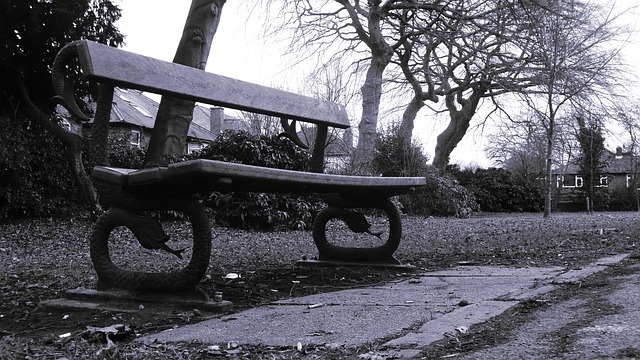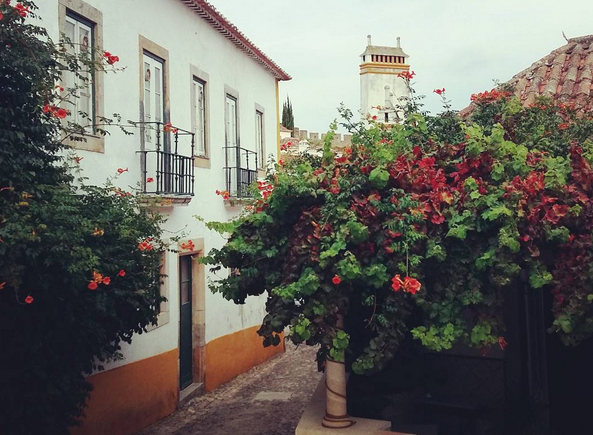
A bench in a whichever park
Imagine a bench, in a whichever park. It’s the classic game of literature: invent places, make them as credible as possible and put in characters and stories.
On our bench are two young. One all immersed in the nineteenth century. The other one son of the new century.
Tonio Kröger, the first one. A distinct young man: the back adhering to the bench, the collar well arranged and a certain appearance of timidity. Despite being to the dawn of the twentieth century, he seems to have never left the previous century. He’s there to talk about literature and art. He does not do it with arrogance. He is fully aware of being a loved writer, but he does not boast about it. He grieves for this, rather.
Once, in the house of Lisaveta Ivanovna – a young girl from the elegant manners and a light thought, which suits to the girls of good family – had confided to him that instead of seeing him as an artist, she saw him as a bourgeois on wrong paths, Tonio Kröger: a bourgeois sidetracked.
And he was left happy. Thank you, Lisaveta Ivanovna: now I can quietly go back home. I am arranged. So he answered. And he was not lying.
On the other side of the bench sits Sinclair. He is the protagonist of the novel Demian by Herman Hesse.
Sinclair, unlike Tony, is a son of his century. He embodies all the major features of it, although considering themselves – and being – a borderline. He is not a man of letters, but he live the same condition of discomfort, at least initially, of Tonio. There is, however, a huge difference between the two characters. When Sinclair mature awareness of his own condition, uncovering him as a marked, there isn’t a situation of uneasiness. . It take shape, rather, more and more clearly a barely concealed pride and only a veiled suffering. Sinclair belongs to a small group of selected people, that descended directly from the lineage of Cain. They are place on Earth by a superior God to reconcile the good with the bad.
Lyricism of Thomas Mann. Luck of Herman Hesse.
Tonio is the beautiful picture of the consequences of the literature. Being a writer is first and foremost a state of suffering. There is no doubt that the pages of Tonio Kröger represent the author’s literary testament.
Thomas Mann is – in our opinion – the best that the German literature of the last century has produced.
They should remember three masterpieces of his bibliography. The Buddenbrok, an early work which earned him the Nobel Prize. The Magic Mountain, for the middle period, which in its ambitious project stands as a picture of the feelings of the first half of the century. Doctor Faustus, finally, seals a unique and precious bibliography.
We reserve a different opinion for the work of Hermann Hesse. Strongly opposed by the international critics, his books have – today – a great fortune in terms of sales. In bookstores it is easy to find entire sections dedicated to Herman Hesse, with titles that show a mixture of philosophical / sentimental or philosophical / esoteric or sentimental / esoteric – if you accept the opinion sociologically demonstrable that these elements have a status of high consideration in recent times and that mixing them in the right doses it means significant economic benefits to the producers / publishers.
The well calibrated lyricism of Mann has nothing to do with the flat and prosaic narrative of Hesse.
The Art as malediction for few people for the first one as well as the esotericism for initiates of the second are closed environments, where you can only enter by vocation and destiny. But if Mann, through his literary research, comes to reveal the miserable nature of art showing it right into his better hidden wounds, Hesse instead, coming to the esoteric, he is fascinated from it, at the end he succumbs to it, letting the plot, characters and writing be sacrificed on the altar of esotericism.
The generals who resign uniforms and write verses, for Mann, are unconscious of the fortune they own to not participate in the nature of the artist. The not marked boys – for Hesse – impact negatively on Sinclair, have the guilt of not being able to understand “the bigger picture”.
A long friendship
It is clear that the wires of Tonio and Sinclair are manipulated, without too much effort to hide the hands, by their authors. If their art has led them to create such characters and styles, life has united them in a strong and enduring friendship. They shared travels and readings maintaining an open communication on literature through a dense correspondence and frequent meetings.
The day that Thomas Mann finished reading the Demian, told his friend to find it “a precious object.” The complete works of Hesse had much luck thanks to the influence of the positive reviews of Mann.
Today this influence has exhausted its effects. Mann is a writer for students and literature fans. Hesse continues to be read by many readers.
If we were near the bench any, in a park any, probably Sinclair will be more likeable and sociable of his friend.
Never mind, we still sympathize for Tonio.


